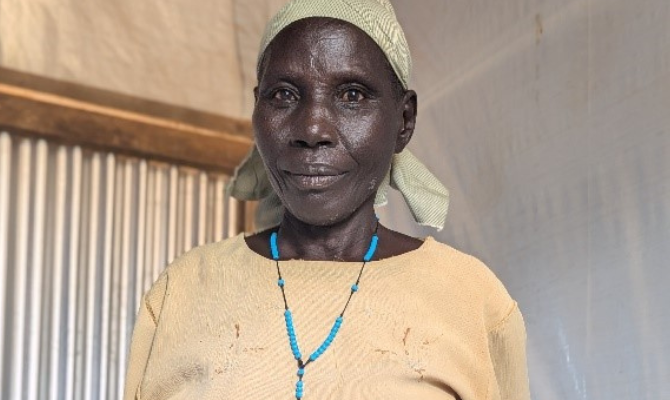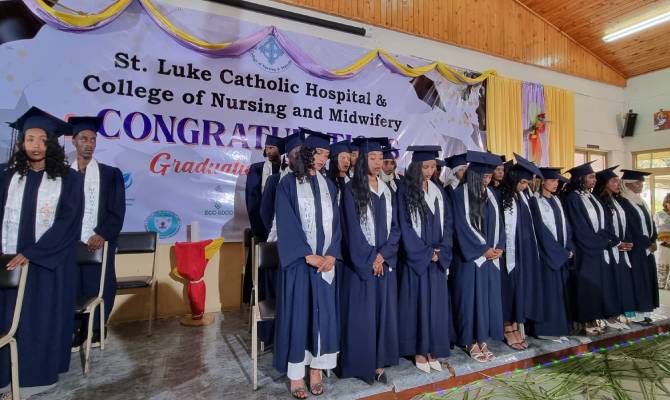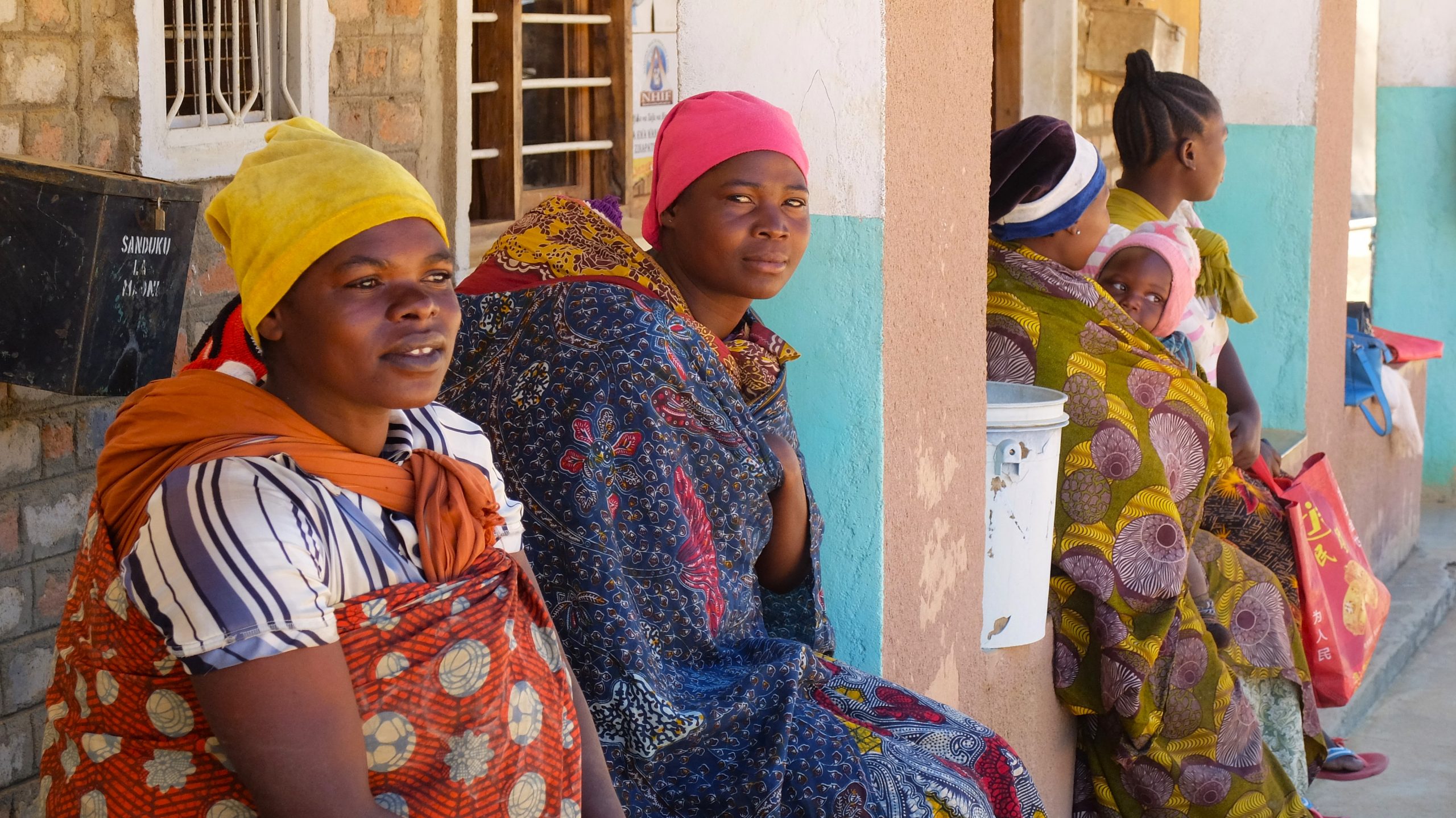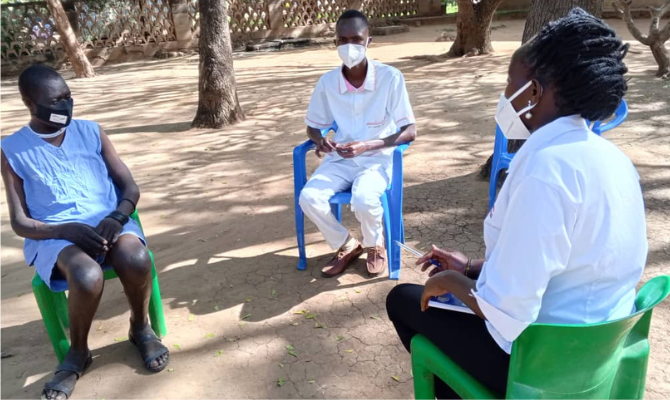Yobu Regina is a 62-year-old woman. She fled South Sudan two years ago due to the raging conflict and took refuge in a village around Imvepi in the Terego district of northernUganda. Like her, there are hundreds of thousands of refugees in Uganda. According to UNHCR data, Uganda hosts more than 1.7 million refugees and asylum seekers, the majority from South Sudan, 57%, followed by the Democratic Republic of Congo, Somalia and Burundi. People, particularly women, children and the elderly, fleeing conflict, violence, food insecurity and lack of access to basic services such as health and education.
This was also the case for Regina. While fleeing the war, she suffered an injury from a bruised back that caused her severe pain and weakness in her lower limbs, to the point that it was very difficult for her to perform all daily activities, such as cooking, fetching water and even walking. Regina initially went to the ‘Tank 29’ health post and was later referred to Arua Regional Hospital, where she was diagnosed with severe degenerative lumbar spondylosis, a condition in which the bones in her lower back become severely worn and the adjacent joints tear when subjected to strain.
Associated with this condition was another one, radiculopathy, a condition of weakness and paralysis in both lower limbs. Even after completing the treatment she had been prescribed by doctors for a fortnight, Regina’s pain persisted, forcing her to go to the health facility regularly to take painkillers. During one of the visits, she learnt that Cuamm provides free orthopaedic services, including equipment and drugs, through a mobile clinic service run by specialised health workers as part of the project “Inclusive emergency initiative to strengthen health services and hygiene practices in refugee and host communities in West Nile, Uganda”, funded by the Italian Agency for Development Cooperation and implemented by Cuamm in collaboration with CBM International and the local NGO Commumity Empowerment for Rural Development (Ceford ).
It was thanks to this service that Regina was thoroughly examined by Dr Denis, Cuamm orthopaedist, and in addition to specific drugs, she was prescribed the use of a lumbar corset. “We have been waiting for a long time for these services to start, which can alleviate my suffering and that of other people like me,” she said. Two weeks later, Regina showed up for her follow-up visit with a beaming smile on her face and a feeling of great relief from the pain she had suffered for so long. ‘I am very grateful for what you have done, I feel much better and can now walk without pain in my back. I pray that you will continue to stay here, extending the services even further.”
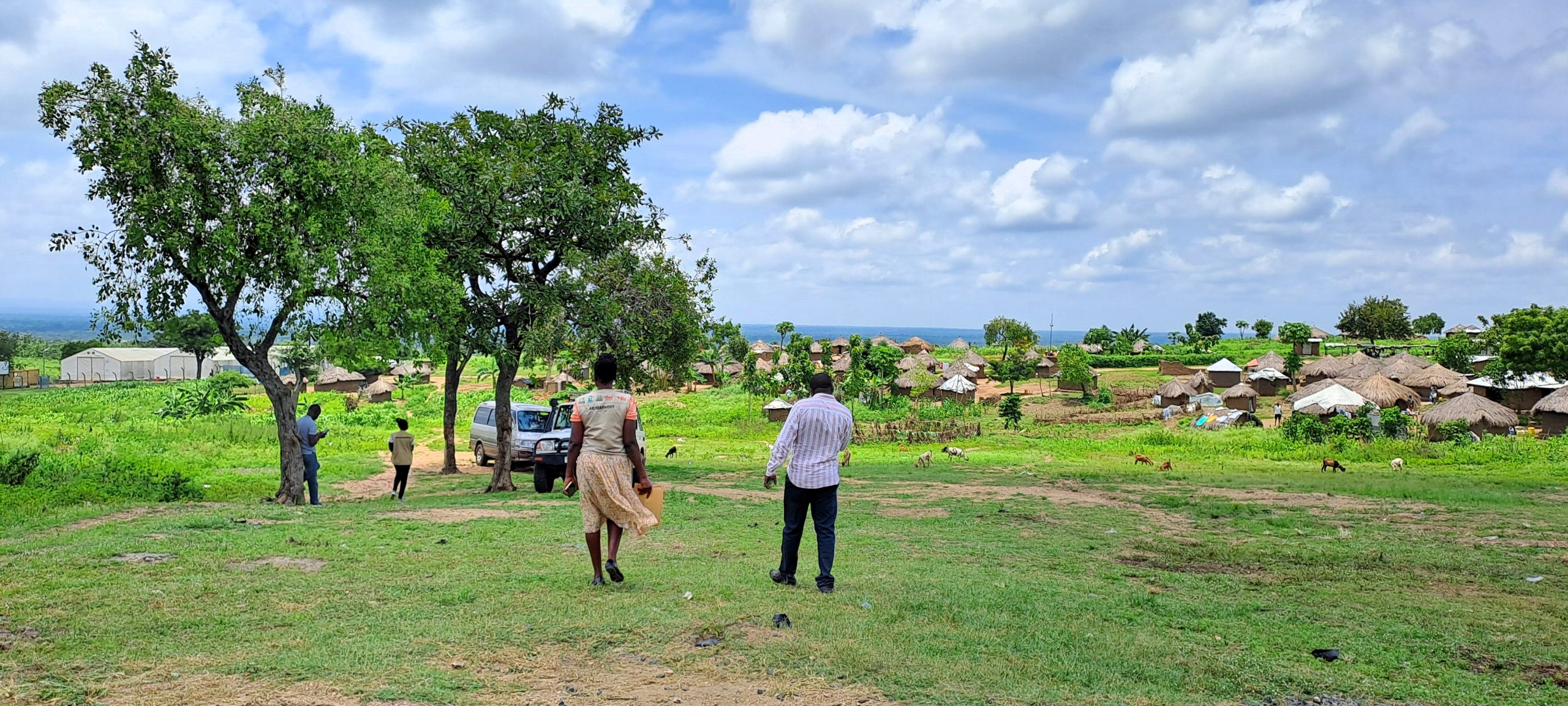
Launched in September 2023, the intervention aims to address the needs of refugees and the host population, in particular by improving access to integrated health services, strengthening hygiene practices with special attention to women and persons with disabilities, and improving the referral system for the most vulnerable groups. From the start of the project until June 2024, 121,402 people accessed outpatient consultations at the 11 health centres involved in the intervention; 1,866 attended deliveries and 31 reported obstetric complications; 14,566 people were reached and received care through the mobile clinics; and again, 354 people with fractures and special musculoskeletal conditions were assisted, as was the case in Regina.
A key role in the implementation of integrated services is played by Village Health Teams (Vhts ), community-based village workers who, once trained, carry out health promotion, disease prevention and referral of the most serious cases, including integrated community management of cases of malaria, diarrhoea and respiratory diseases. In addition, Vhts are actively engaged in the promotion of good hygiene practices (WASH) at the household level. There are 277 of them trained on the “integrated health package”.
Every day, in many of the countries where we operate, we touch the consequences suffered by people who have no alternative but to flee for their lives and try to build a better future. Uganda has become almost a model of reception and integration on the continent , and Doctors with Africa Cuamm is committed to playing its part in supporting this system.

